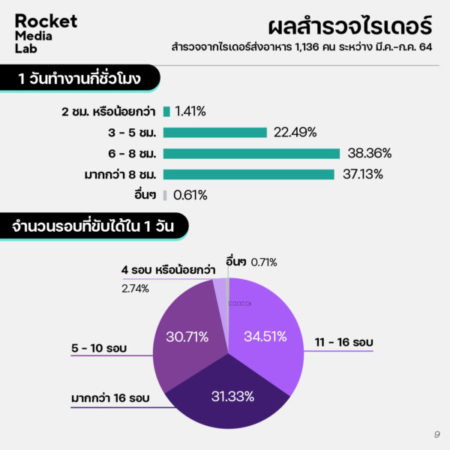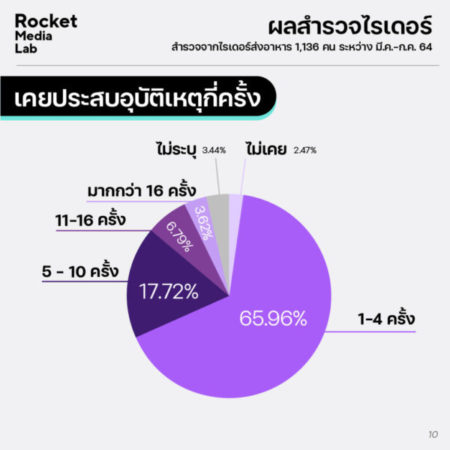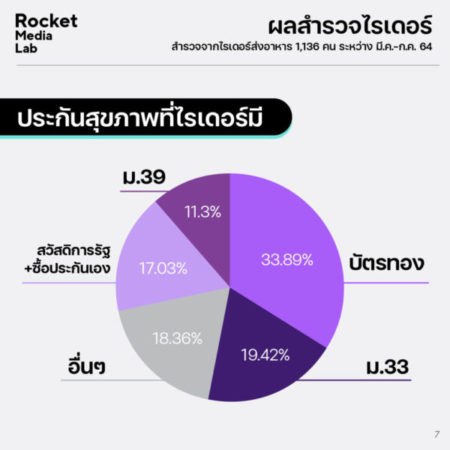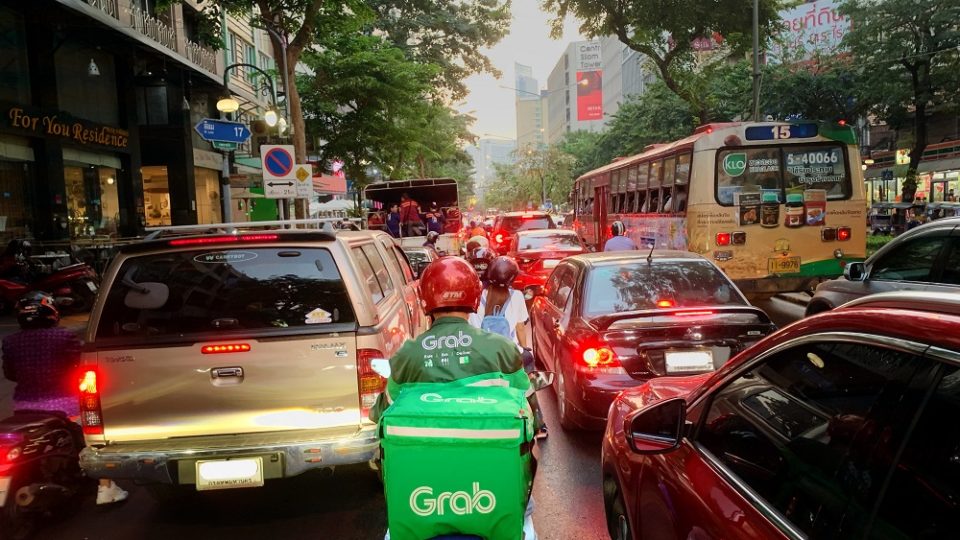Two of three delivery riders keeping Bangkok and Thailand fed at home have been in accidents at least once – some many more – for which they get zero support from their employers.
As the riders struggle for better pay and benefits, a survey of more than 1,100 of them found that they risk their health and safety while being saddled with heavy workloads, low wages and few legal protections.
“It seems that the leaping growth of the food delivery business comes with many problems,” Rocket Media Lab said in a statement. “Riders in Thailand are not eligible to be regulated by labor protection laws as ‘platform labor’ such as a standard wage rate or other types of welfare.”
While the pandemic peaked this year, hundreds of riders for the food delivery applications have rallied to demand access to benefits afforded other workers and the reversal of pandemic-era pay cuts, among other reforms.
Disabled GrabFood delivery rider killed in accident on Tiwanon Road
The survey by Rocket Media Lab – which researches social issues and received a grant from the National Endowment for Democracy – was conducted from March through July and covered Bangkok as well as provinces such as Chiang Mai and Songkhla. The survey was conducted via face-to-face polling and online survey.
Most riders said they worked few – or many – hours for low pay. Just over 37% said they worked more than eight hours in a day, while roughly 23% worked only three to five. Nearly 38% worked relatively normal days of six to eight hours.
Nearly half said they brought home THB11,000 to 15,000, while just over one in four (27.7%) earned THB15,000 to THB20,000. Only a small handful of the riders, 4.5% or fewer than 1 in 20, earned over THB30,000 per month.
Average household income in Bangkok in 2019 was THB39,549.

The results point to an overdue reckoning for the global gig economy, in which workers have surrendered traditional protections in exchange for flexibility – and benefit to corporate bottom lines.
In Thailand, better compensation, basic employee rights and health insurance were among the riders’ top demands.
The survey found 26% want financial compensation for accidents. While 66% had gotten into one-to-four accidents, a surprising 28% said they’d been in even more scrapes: five to 16.

To qualify for better worker’s rights, 16.2% said they want full employee status rather than working as independent contractors. Of lower demand was health insurance – 13.4% said it was a priority for them.
Those with some form of health coverage mostly had access (34%) only to the so-called Gold Card universal health care system launched back in the era of deposed Prime Minister Thaksin Shinawatra. The rest relied on social welfare insurance or paid out of pocket for private policies.

Three-in-five riders said hustling food orders was their primary employment; two in five said it was a side-hustle to full-time jobs as office workers, contractors or even government workers.
How many deliveries did they make in a typical shift? Eleven to 16 was the most common response – just over one in three or 34.5%. Nearly a third of the respondents 31.3%) said they made more than 16 rounds per shift.
The full results in Thai are at Rocket Media Lab.
Related
Disabled GrabFood delivery rider killed in accident on Tiwanon Road
GrabBike rider beaten by motosai taxis on Soi Sukhumvit 48 (Video)




